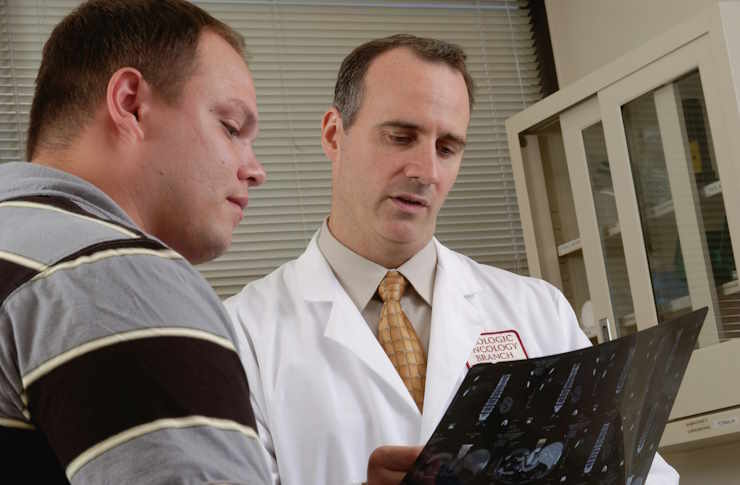Understanding Genetic Counseling: Process and Applications Explained
Genetic counseling is a vital aspect of healthcare that helps individuals understand their genetic risks, make informed decisions, and navigate complex genetic information. This article delves into the process of genetic counseling, highlighting when it is used, how it benefits individuals and families, and the role of genetic counselors in providing support and guidance.

What is genetic counseling and how does it work?
Genetic counseling is a collaborative process between a trained genetic counselor and an individual or family seeking information about their genetic health. The process typically begins with a comprehensive assessment of the patient’s personal and family medical history. This information helps the genetic counselor identify potential genetic risks and determine if genetic testing might be beneficial.
During a genetic counseling session, the counselor explains complex genetic concepts in understandable terms, discussing the inheritance patterns of specific conditions and the likelihood of passing them on to future generations. They also provide information about available genetic tests, their limitations, and potential implications of test results.
Why is genetic risk assessment important?
Genetic risk assessment is a crucial component of genetic counseling that helps individuals understand their likelihood of developing or passing on inherited conditions. By analyzing family history, genetic markers, and other relevant factors, genetic counselors can provide personalized risk estimates for various genetic disorders.
This information empowers individuals to make informed decisions about their health, lifestyle choices, and family planning. For example, someone with an increased risk of hereditary cancer might opt for more frequent screenings or preventive measures. Similarly, couples planning to have children can use genetic risk assessment to understand the potential of passing on genetic conditions to their offspring.
How do genetic counselors interpret and communicate genetic information?
Genetic counselors are trained professionals who specialize in interpreting complex genetic information and communicating it effectively to patients. They use their expertise to translate scientific data into practical, actionable insights that patients can understand and use to make informed healthcare decisions.
These professionals not only explain the technical aspects of genetic test results but also discuss the emotional, psychological, and social implications of this information. They provide support and resources to help individuals and families cope with the potential impact of genetic conditions on their lives.
What types of healthcare decisions can genetic counseling inform?
Genetic counseling can inform a wide range of healthcare decisions, including:
-
Preventive measures: Individuals at high risk for certain genetic conditions may choose to undergo more frequent screenings or adopt lifestyle changes to reduce their risk.
-
Treatment options: Genetic information can help guide treatment choices for certain conditions, allowing for more personalized and effective care.
-
Family planning: Couples can make informed decisions about conception methods, prenatal testing, or adoption based on their genetic risk factors.
-
Career choices: Some genetic conditions may impact career options, and genetic counseling can help individuals make informed decisions about their professional paths.
-
Life planning: Understanding genetic risks can influence decisions about long-term care planning, financial preparations, and lifestyle choices.
When should someone consider seeking genetic counseling?
Genetic counseling can be beneficial in various situations, including:
-
Family history of genetic conditions: If there’s a known genetic disorder in your family, genetic counseling can help assess your risk and explore testing options.
-
Pregnancy planning: Couples with concerns about inherited conditions or advanced maternal age may benefit from genetic counseling before or during pregnancy.
-
Unexplained medical symptoms: If you have symptoms that suggest a genetic condition but lack a clear diagnosis, genetic counseling may help identify potential genetic causes.
-
Ethnic background: Some genetic conditions are more common in certain ethnic groups, and genetic counseling can provide targeted risk assessment and testing recommendations.
-
Personal or family history of cancer: Genetic counseling can help determine if there’s an inherited predisposition to certain types of cancer and guide preventive measures.
How has online counseling impacted access to genetic counseling services?
Online counseling has significantly improved access to genetic counseling services, making it easier for individuals to connect with genetic counselors regardless of their geographic location. This digital approach has several advantages:
-
Increased accessibility: People in rural or underserved areas can now access genetic counseling services without the need for long-distance travel.
-
Convenience: Online sessions can be scheduled at more flexible times, accommodating busy lifestyles and work schedules.
-
Reduced costs: Virtual consultations often have lower associated costs, making genetic counseling more affordable for many individuals.
-
Expanded reach: Online platforms allow genetic counselors to serve a broader range of patients, potentially reducing wait times for appointments.
-
Enhanced follow-up care: Digital tools make it easier for genetic counselors to provide ongoing support and updated information to their patients.
While online genetic counseling offers many benefits, it’s important to note that some complex cases may still require in-person consultations or physical examinations. However, the integration of online services has undoubtedly made genetic counseling more accessible and convenient for many individuals seeking genetic information and support.
Genetic counseling plays a vital role in modern healthcare, offering individuals and families the tools to understand and manage their genetic health. By combining scientific expertise with compassionate support, genetic counselors help patients navigate the complex world of genetic information and make informed decisions about their health and future. As genetic technologies continue to advance, the importance of genetic counseling in healthcare is likely to grow, further emphasizing its role in personalized medicine and preventive care.
This article is for informational purposes only and should not be considered medical advice. Please consult a qualified healthcare professional for personalized guidance and treatment.




